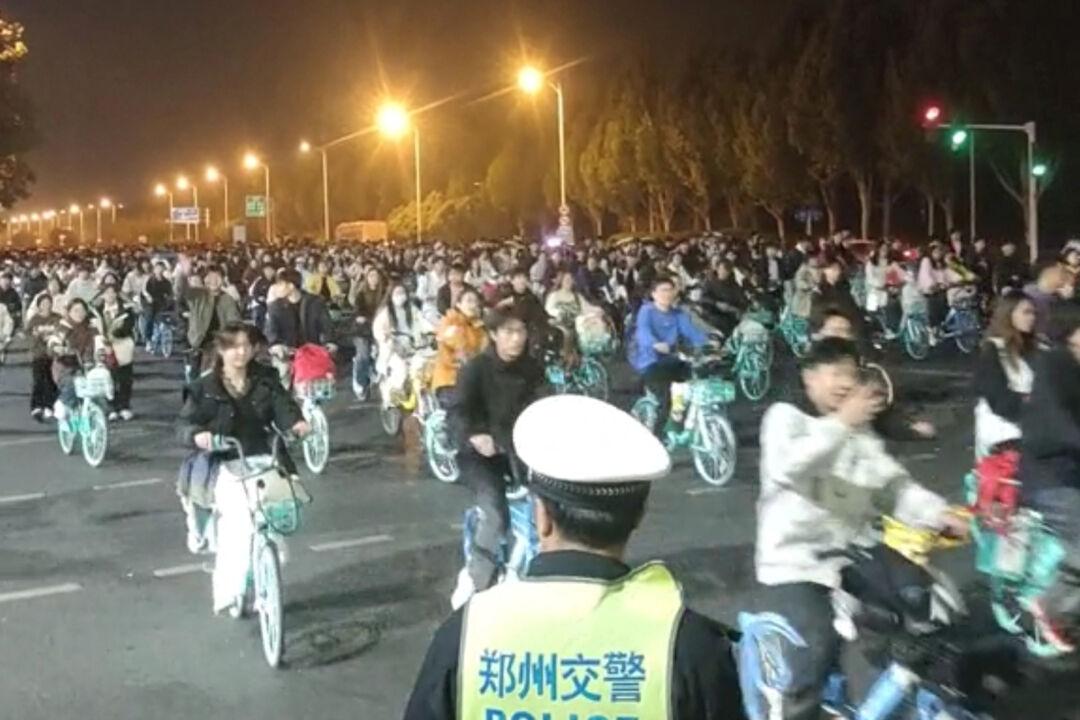Bicycling at night has become a popular activity among university students in China, attracting attention as thousands simultaneously turn out at a time when morale among young people in the communist country has hit a low because of bleak employment prospects.
On Nov. 8, the turnout in Kaifeng city, Henan Province, neared 200,000 by some counts on Chinese social media, drawing a reaction from the Chinese Communist Party (CCP), with police urgently trying to shut the activity down.





